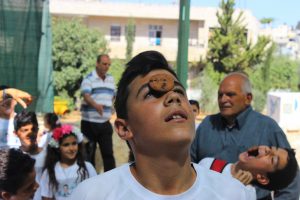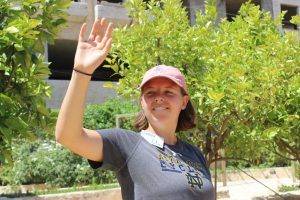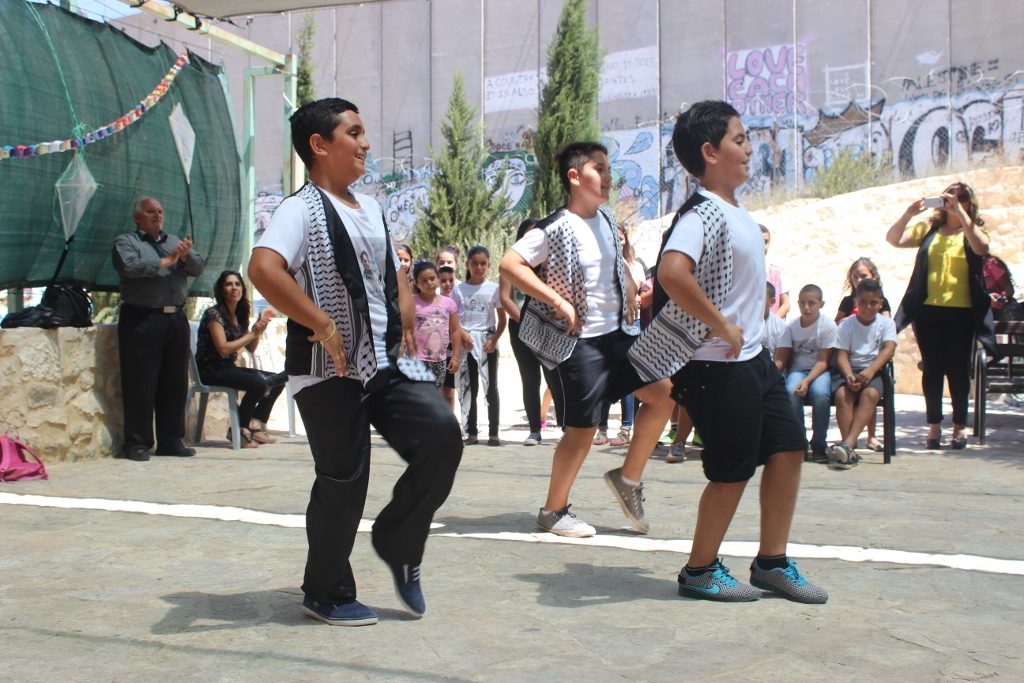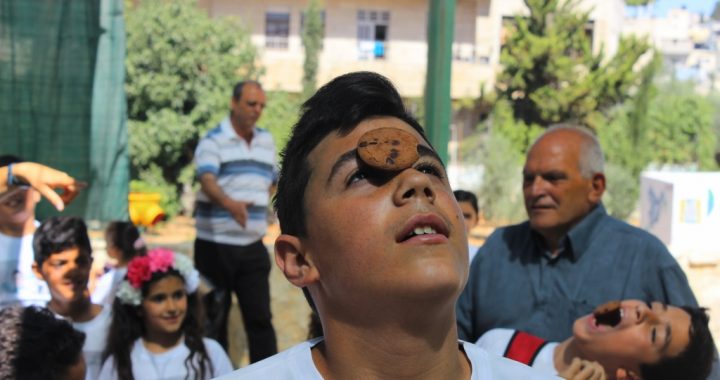Children are the most vulnerable stratum of a society. Summer camps contribute to shaping the personalities of the children that participate. Beside schools, summer camps focus more on activities that help develop the physical, mental, psychological, and social aspects of a child’s life. They provide opportunities for creativity, freedom of expression, critical thinking, innovation, and democratic practices.
 Wi’am’s Summer Camp 2016 took place during the whole month of July. We mobilized our own staff, as well as local and international volunteers to run the activities that helped develop the physical, mental, psychological, and social aspects of a child’s life. Our aim was to improve the immediate and future quality of life for the children through educational, recreational, and cultural activities.
Wi’am’s Summer Camp 2016 took place during the whole month of July. We mobilized our own staff, as well as local and international volunteers to run the activities that helped develop the physical, mental, psychological, and social aspects of a child’s life. Our aim was to improve the immediate and future quality of life for the children through educational, recreational, and cultural activities.
We worked with 120 children age 6-15 years old, coming from Bethlehem District with a focus on marginalized children with no access to recreational activities. We provided opportunities for creativity, freedom of expression, critical thinking, and innovation. These activities varied, from drama to dance, art, and role-playing.
For many of the children, this safe environment was their only means of entertainment, recreation, and free play in their daily lives. The activities include nonviolent conflict resolution techniques, peer mediation, matters concerning children’s rights, gender equality, and environmental issues.
 We had an amazing summer Camp. The kids learned so much, and they taught us adults much about laughter, hope, and energy. They have a lot of all three to go around! We are grateful to all who contributed to another successful Summer Camp, especially to our volunteers and staff for their commitment to creating opportunities for young people.
We had an amazing summer Camp. The kids learned so much, and they taught us adults much about laughter, hope, and energy. They have a lot of all three to go around! We are grateful to all who contributed to another successful Summer Camp, especially to our volunteers and staff for their commitment to creating opportunities for young people.
Words from our Children:
“I enjoyed the camp, it built my personality, equipped me with skills to deal with problems and mediate peer-conflicts that I face in my school.” – Amjad, 8 year-old boy from the Bethlehem Area
“… It has been an enjoyable Summer Camp in which we have the chance to interact with our peers and learn new knowledge, information and games that nourish our mind. We learn the importance of community serving and family values as a way of developing a healthy society.” – Shukri, 12 years old


